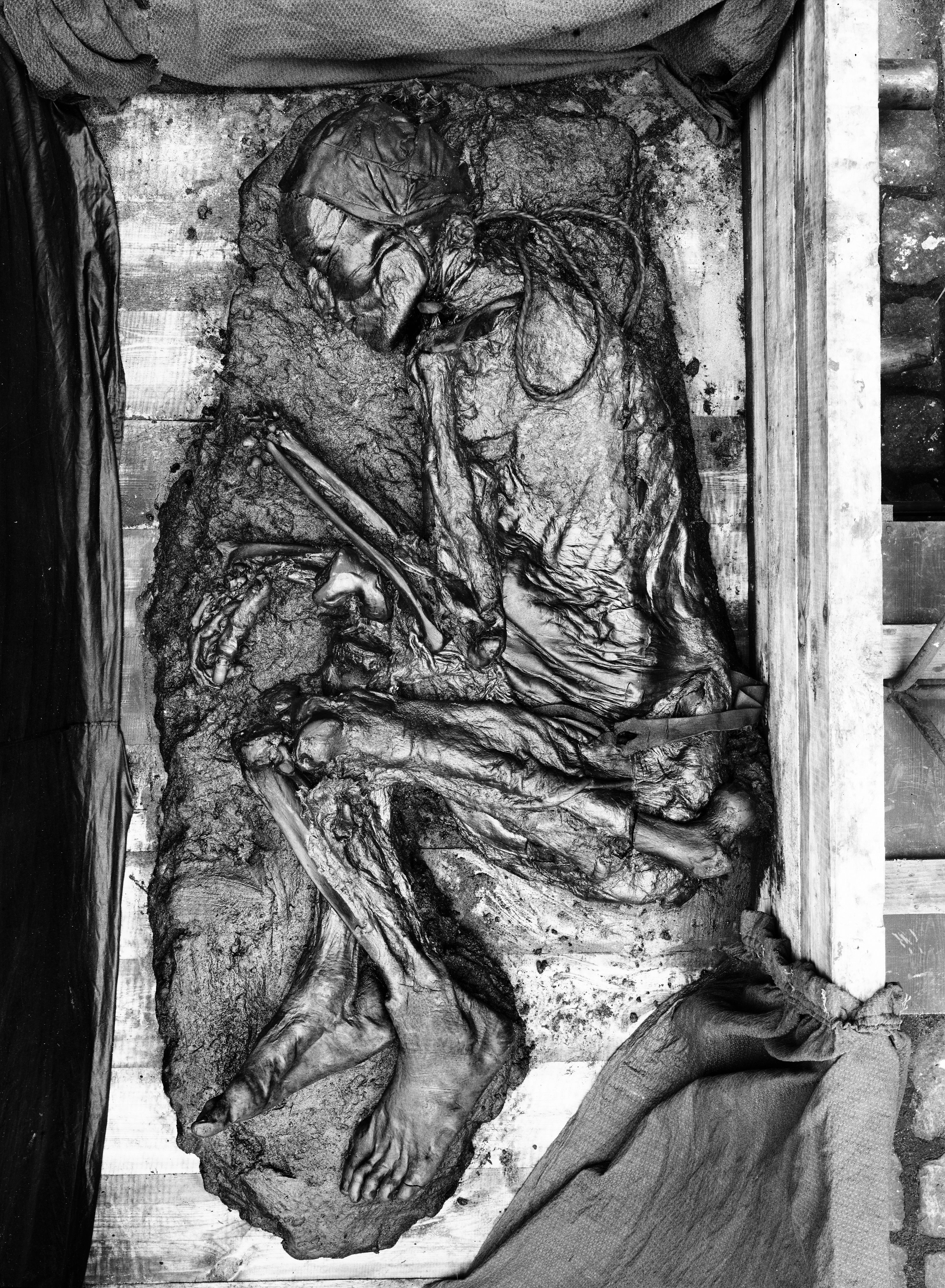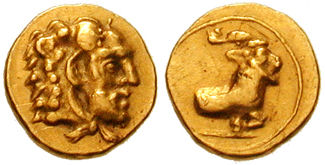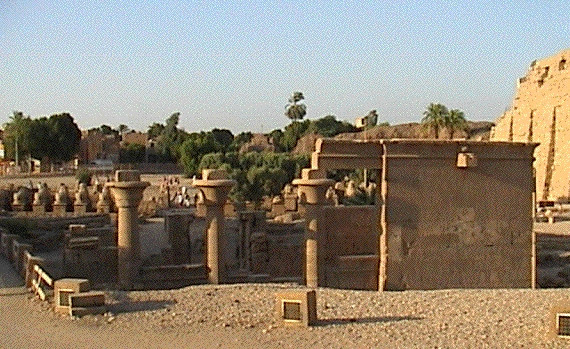|
390 BC
__NOTOC__ Year 390 BC was a year of the pre-Julian Roman calendar. At the time, it was known as the Year of the Tribunate of Ambustus, Longus, Ambustus, Fidenas, Ambustus and Cornelius (or, less frequently, year 364 ''Ab urbe condita''). The denomination 390 BC for this year has been used since the early medieval period, when the Anno Domini calendar era became the prevalent method in Europe for naming years. Events By place Roman Republic * July 18 – Battle of the Allia: Brennus, a chieftain of the Senones of the Adriatic coast of Italy, leads an army of Cisalpine Gauls in their attack on Rome. They capture the entire city of Rome except for the Capitoline Hill, which is successfully held against them. However, seeing their city devastated, the Romans attempt to buy their salvation from Brennus. The Romans agree to pay one thousand pounds weight of gold. Egypt * The Pharaoh of Egypt, Hakor (Akoris), concludes a tripartite alliance with Evagoras, king of Cyp ... [...More Info...] [...Related Items...] OR: [Wikipedia] [Google] [Baidu] |
Roman Calendar
The Roman calendar was the calendar used by the Roman Kingdom and Roman Republic. Although the term is primarily used for Rome's pre-Julian calendars, it is often used inclusively of the Julian calendar established by Julius Caesar in 46 BC. According to most Roman accounts, #Romulus, their original calendar was established by their Roman legend, legendary list of kings of Rome, first king Romulus. It consisted of ten months, beginning in spring with March and leaving winter as an unassigned span of days before the next year. These months each had 30 or 31 days and ran for 38 nundinal cycles, each forming a kind of eight-day weeknine days inclusive counting, counted inclusively in the Roman mannerand ending with religious rituals and a Roman commerce, public market. This fixed calendar bore traces of its origin as an observational calendar, observational lunar calendar, lunar one. In particular, the most important days of each monthits kalends, nones (calendar), nones, a ... [...More Info...] [...Related Items...] OR: [Wikipedia] [Google] [Baidu] |
Roman Republic
The Roman Republic ( ) was the era of Ancient Rome, classical Roman civilisation beginning with Overthrow of the Roman monarchy, the overthrow of the Roman Kingdom (traditionally dated to 509 BC) and ending in 27 BC with the establishment of the Roman Empire following the War of Actium. During this period, Rome's control expanded from the city's immediate surroundings to hegemony over the entire Mediterranean Sea, Mediterranean world. Roman society at the time was primarily a cultural mix of Latins (Italic tribe), Latin and Etruscan civilization, Etruscan societies, as well as of Sabine, Oscan, and Greek cultural elements, which is especially visible in the Ancient Roman religion and List of Roman deities, its pantheon. Its political organisation developed at around the same time as direct democracy in Ancient Greece, with collective and annual magistracies, overseen by Roman Senate, a senate. There were annual elections, but the republican system was an elective olig ... [...More Info...] [...Related Items...] OR: [Wikipedia] [Google] [Baidu] |
Andocides
Andocides (; , ''Andokides''; ) was a logographer (speech writer) in Ancient Greece. He was one of the ten Attic orators included in the "Alexandrian Canon" compiled by Aristophanes of Byzantium and Aristarchus of Samothrace in the third century BC. Life Andocides was the son of Leogoras, and was born in Athens around 440 BC. He belonged to the ancient Eupatrid family of the Kerykes, who traced their lineage up to Odysseus and the god Hermes.Pseudo-Plutarch, '' Lives of the Ten Orators''Plutarch, ''Alcibiades'' 21 During his youth, Andocides seems to have been employed on various occasions as ambassador to Thessaly, Macedonia, Molossia, Thesprotia, Italy, and Sicily. Although he was frequently attacked for his political opinions, he maintained his ground until, in 415 BC, he became involved in the charge brought against Alcibiades for having profaned the mysteries and mutilated the Herms on the eve of the departure of the Athenian expedition against Sicily. It appeared pa ... [...More Info...] [...Related Items...] OR: [Wikipedia] [Google] [Baidu] |
Tollund Man
The Tollund Man (died 405–384 BC) is a naturally mummified corpse of a man who lived during the 5th century BC, during the period characterised in Scandinavia as the Pre-Roman Iron Age. He was found in 1950, preserved as a bog body near Silkeborg on the Jutland peninsula in Denmark. The man's physical features were so well preserved that he was mistaken for a recent murder victim. Twelve years before his discovery, another bog body, Elling Woman, was found in the same bog. The cause of death has been determined to be by hanging. There is insufficient evidence to determine if the reason for the killing was a ritual sacrifice or a punitive execution. Discovery On 8 May 1950, peat cutters Viggo and Emil Hojgaard discovered a corpse in the peat layer of the Bjældskovdal peat bog, west of Silkeborg, Denmark, which was so well preserved that they at first believed they had discovered a recent murder victim. The Tollund Man lay away from firm ground, buried under of peat, ... [...More Info...] [...Related Items...] OR: [Wikipedia] [Google] [Baidu] |
Hypereides
Hypereides or Hyperides (, ''Hypereidēs''; c. 390 – 322 BC; English pronunciation with the stress variably on the penultimate or antepenultimate syllable) was an Athenian logographer (speech writer). He was one of the ten Attic orators included in the "Alexandrian canon" compiled by Aristophanes of Byzantium and Aristarchus of Samothrace in the third century BC. He was a leader of the Athenian resistance to King Philip II of Macedon and Alexander the Great. He was associated with Lycurgus and Demosthenes in exposing pro- Macedonian sympathizers. He is known for prosecuting Philippides of Paiania for his pro-Macedonian measures and his decree in honoring Alexander the Great. Rise to power Little is known about his early life except that he was the son of Glaucippus of the deme of Collytus and that he studied logography under Isocrates. In 360 BC, he prosecuted Autocles for treason. During the Social War (358–355 BC) he accused Aristophon, then one of the most inf ... [...More Info...] [...Related Items...] OR: [Wikipedia] [Google] [Baidu] |
Epidaurus
Epidaurus () was a small city (''polis'') in ancient Greece, on the Argolid Peninsula at the Saronic Gulf. Two modern towns bear the name Epidavros: ''Palaia Epidavros'' and ''Nea Epidavros''. Since 2010 they belong to the new municipality of Epidaurus, part of the regional unit of Argolis. The seat of the municipality is the town Lygourio. The nearby Temple of Asclepius, Epidaurus, sanctuary of Asclepius and Ancient Theatre of Epidaurus, ancient theatre were inscribed on the UNESCO World Heritage List in 1988 because of their exemplary architecture and importance in the development and spread of healing sanctuaries and cults across the ancient Greek and Roman worlds. Name and etymology The name "Epidaurus" is of Greek language, Greek origin. It was named after the hero Epidaurus (mythology), Epidauros, son of Apollo. According to Strabo, the city was originally named Ἐπίκαρος (Epíkaros) under the Carians, (Aristotle claimed that Caria, as a naval empire, occupied Epidau ... [...More Info...] [...Related Items...] OR: [Wikipedia] [Google] [Baidu] |
Asclepius
Asclepius (; ''Asklēpiós'' ; ) is a hero and god of medicine in ancient Religion in ancient Greece, Greek religion and Greek mythology, mythology. He is the son of Apollo and Coronis (lover of Apollo), Coronis, or Arsinoe (Greek myth), Arsinoe, or of Apollo alone. Asclepius represents the healing aspect of the medical arts; his daughters, the "Asclepiades", are: Hygieia ("Health, Healthiness"), Iaso (from ἴασις "healing, recovering, recuperation", the goddess of recuperation from illness), Aceso (from ἄκεσις "healing", the goddess of the healing process), Aegle (mythology), Aegle (the goddess of good health) and Panacea (the goddess of universal remedy). He has several sons as well. He was associated with the Roman/Etruscan god Vediovis and the Egyptian Imhotep. The rod of Asclepius, a snake-entwined staff similar to the caduceus, remains a symbol of medicine today. Those physicians and attendants who served this god were known as the Therapeutae of Asclepius. ... [...More Info...] [...Related Items...] OR: [Wikipedia] [Google] [Baidu] |
Athens
Athens ( ) is the Capital city, capital and List of cities and towns in Greece, largest city of Greece. A significant coastal urban area in the Mediterranean, Athens is also the capital of the Attica (region), Attica region and is the southernmost capital on the European mainland. With its urban area's population numbering over 3.6 million, it is the List of urban areas in the European Union, eighth-largest urban area in the European Union (EU). The Municipality of Athens (also City of Athens), which constitutes a small administrative unit of the entire urban area, had a population of 643,452 (2021) within its official limits, and a land area of . Athens is one of the List of oldest continuously inhabited cities, world's oldest cities, with its recorded history spanning over 3,400 years, and its earliest human presence beginning somewhere between the 11th and 7th millennia BCE. According to Greek mythology the city was named after Athena, the ancient Greek goddess of wisdom, ... [...More Info...] [...Related Items...] OR: [Wikipedia] [Google] [Baidu] |
Cyprus
Cyprus (), officially the Republic of Cyprus, is an island country in the eastern Mediterranean Sea. Situated in West Asia, its cultural identity and geopolitical orientation are overwhelmingly Southeast European. Cyprus is the List of islands in the Mediterranean, third largest and third most populous island in the Mediterranean, after Sicily and Sardinia. It is located southeast of Greece, south of Turkey, west of Syria and Lebanon, northwest of Israel and Palestine, and north of Egypt. Its capital and largest city is Nicosia. Cyprus hosts the British Overseas Territories, British military bases Akrotiri and Dhekelia, whilst the northeast portion of the island is ''de facto'' governed by the self-declared Northern Cyprus, Turkish Republic of Northern Cyprus, which is separated from the Republic of Cyprus by the United Nations Buffer Zone in Cyprus, United Nations Buffer Zone. Cyprus was first settled by hunter-gatherers around 13,000 years ago, with farming communities em ... [...More Info...] [...Related Items...] OR: [Wikipedia] [Google] [Baidu] |
Evagoras I
Evagoras or Euagoras () was the king of Salamis (411–374 BC) in Cyprus, known especially from the work of Isocrates, who presents him as a model ruler. History He claimed descent from Teucer, the son of Telamon and half-brother of Ajax, and his family had long been rulers of Salamis, although during his childhood, Salamis came under Phoenician control, which resulted in his exile. While in Cilicia, Evagoras gathered the support of 50 followers and returned secretly in 410 BC, to gain possession of the throne. Expecting an eventual Persian response to recapture Cyprus, he cultivated the friendship of the Athenians, and after Conon's defeat at the Battle of Aegospotami he provided him with a refuge. For a time, he also maintained friendly relations with the Achaemenid Empire, and secured the aid of Artaxerxes II for Athens against Lacedaemon. He took part in the Battle of Cnidus of 394 BC which he provided most of the resources for and in which the Lacedaemonian fleet was ... [...More Info...] [...Related Items...] OR: [Wikipedia] [Google] [Baidu] |
Hakor
Hakor or Hagar, also known by the hellenized forms Achoris or Hakoris, was an ancient Egyptian pharaoh of the 29th Dynasty. His reign marks the apex of this feeble and short-lived dynasty, having ruled for 13 years – more than half of its entire duration. Reign Struggle for the accession Hakor's accession and relationships with his predecessor Nepherites I were long debated. After Nepherites' death a dynastic struggle did seem to have occurred, and the throne was claimed by two or maybe three pretenders: Hakor, Psammuthes, and possibly a phantom figure called Muthis who was only mentioned in Eusebius' epitome of Manetho's ''Aegyptiaca''. As a result, Hakor was alternately considered Nepherites' legitimate successor or an unrelated usurper. In 1986, John D. Ray suggested that Hakor was Nepherites' heir, who ruled undisturbed until his Year 2 when he was deposed by Psammuthes. After another year, Hakor managed to retake his legitimate throne by overthrowing the usurper, and ... [...More Info...] [...Related Items...] OR: [Wikipedia] [Google] [Baidu] |
Egypt
Egypt ( , ), officially the Arab Republic of Egypt, is a country spanning the Northeast Africa, northeast corner of Africa and Western Asia, southwest corner of Asia via the Sinai Peninsula. It is bordered by the Mediterranean Sea to northern coast of Egypt, the north, the Gaza Strip of Palestine and Israel to Egypt–Israel barrier, the northeast, the Red Sea to the east, Sudan to Egypt–Sudan border, the south, and Libya to Egypt–Libya border, the west; the Gulf of Aqaba in the northeast separates Egypt from Jordan and Saudi Arabia. Cairo is the capital, list of cities and towns in Egypt, largest city, and leading cultural center, while Alexandria is the second-largest city and an important hub of industry and tourism. With over 109 million inhabitants, Egypt is the List of African countries by population, third-most populous country in Africa and List of countries and dependencies by population, 15th-most populated in the world. Egypt has one of the longest histories o ... [...More Info...] [...Related Items...] OR: [Wikipedia] [Google] [Baidu] |






